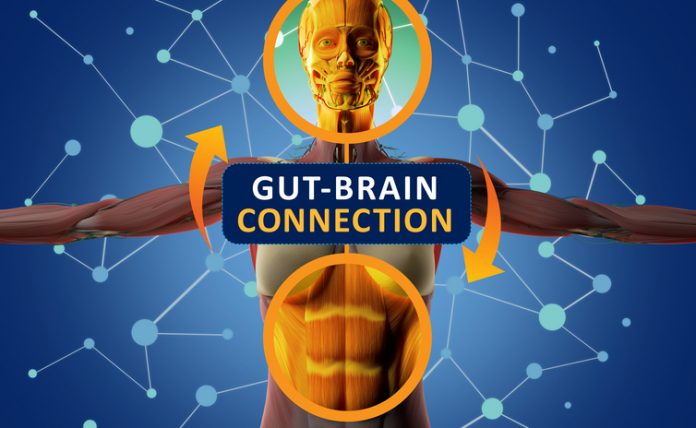
Next-generation sequencing studies by Alan E. Hoban, Ph.D., Gerard Clarke, Ph.D., and colleagues at the the APC Microbiome Institute at University College Cork have uncovered a link between the gut microbiome and microRNA (miRNA) expression in the brains of rats and mice that could feasibly lead to new approaches to treating anxiety disorders by modulating the gut microbiota.
In the study, Hoban and colleageus showed that compared with normal mice, germ-free (GF) mice that are born with no gut microbiota demonstrated altered expression of 103 miRNAs in the amygdala and 31 in the prefrontal cortex regions of the brain, which are areas known to be involved in anxiety and depression. A number of the miRNAs identified have previously been linked with stress and fear responses in mice and with the regulation of neuronal growth and development.
The researchers’ experiments also found that restoring the microbiome in GF mice led to partial normalization of miRNA expression in the same brain regions. Nevertheless, the expression of a large number of miRNAs remained changed even after the GF mice exposed to microbes. “This supports the concept of critical neurodevelopmental windows during which the gut microbiota is essential in influencing brain development,” they write in their published paper in Microbiome, which is entitled “Microbial Regulation of MicroRNA Expression in the Amygdala and Prefrontal Cortex.”
The effects of a lack of gut microbiota on brain miRNA expression weren’t just observed in mice, however. When the team used an antibiotic cocktail to knock out the gut microbiota in healthy adult rats, these animals also developed similarly altered miRNA expression in the prefrontal cortex and amygdala. This suggests that changes to the microbiome later in life can still impact on areas of the brain relevant to anxiety-like behaviors.
Dr. Clarke and colleagues suggest that their studies are the first to directly link the microbiome to miRNA expression in both the amygdala and prefrontal cortex and admit that the work is at a very early stage. Dr. Clarke noted that it isn’t clear yet how the gut microbiome influences miRNA expression in the brain, and that much more research is needed to understand the association between gut bacteria, miRNAs and anxiety-like behaviors, before translating the findings into a clinical setting. Nevertheless, he said “…the possibility of achieving the desired impact on miRNAs in specific regions by targeting the gut microbiota—for example by using psychobiotics—is an appealing prospect.”
Meanwhile, earlier this week Juan M. Lima-Ojeda, Ph.D., and colleagues at the University of Regensburg in Germany published a review of current evidence linking the gut microbiome to mental health. The review, in Frontiers in Psychiatry, highlighted studies indicating that the gut microbiome might influence neurodevelopment in the fetus and that this could feasibly impact on psychiatric health later in life. Other evidence highlighted by the review suggests that mental health problems such as depression may be triggered at any point in a person’s life by changes in the gut microbiome due to stress, diet, or drugs such as antibiotics. The paper by Drs. Lima-Ojeda, Rainer Rupprecht, and Thomas C. Baghai, is entitled “I Am I and My Bacterial Circumstances”: Linking Gut Microbiome, Neurodevelopment, and Depression.”
And completely separately, today, researchers at the University of Utah published studies in PLOS Biology (“Lef1-Dependent Hypothalamic Neurogenesis Inhibits Anxiety”) demonstrating that deletion of a single gene in zebrafish and mice disrupts hypothalamic nerve development and causes the animals to exhibit increased anxiety.













